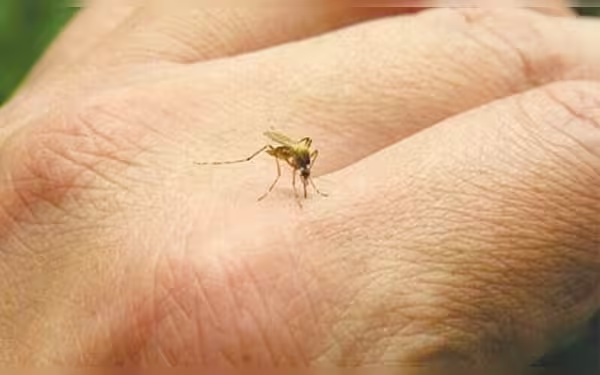Saturday, November 16, 2024 07:48 PM
Chikungunya Advisory Issued by Pakistan's Health Ministry
- NIH issues advisory for Chikungunya prevention.
- Public awareness crucial to combat mosquito bites.
- Seek medical attention for Chikungunya symptoms.
 Image Credits: dawn.com
Image Credits: dawn.comThe NIH has issued an advisory to prevent Chikungunya, emphasizing public awareness and protective measures against mosquito bites.
Chikungunya is a viral infection that has been causing concern in various parts of the world, including Pakistan. This disease is primarily transmitted through the bites of Aedes mosquitoes, particularly the Aedes aegypti and Aedes albopictus species. These mosquitoes are commonly found in tropical and subtropical regions, and their presence can lead to outbreaks of Chikungunya, especially during the rainy season when stagnant water provides ideal breeding grounds.
In response to the rising threat of this viral infection, the Ministry of National Health Services (NIH) has taken proactive measures by issuing an advisory aimed at preventing and controlling the spread of Chikungunya across the country. The advisory emphasizes the importance of public awareness and personal protective measures to reduce the risk of mosquito bites.
To protect oneself from Chikungunya, the NIH recommends several key strategies. First and foremost, individuals should wear long-sleeved clothing and use mosquito repellent on exposed skin. Additionally, it is crucial to eliminate any standing water around homes, as this is where mosquitoes breed. Simple actions like covering water storage containers and cleaning up debris can significantly reduce mosquito populations.
Moreover, the advisory highlights the symptoms of Chikungunya, which include high fever, severe joint pain, and rash. It is essential for individuals experiencing these symptoms to seek medical attention promptly. Early diagnosis and supportive care can help manage the symptoms effectively.
As the rainy season approaches, it is vital for communities to come together and take collective action against the spread of Chikungunya. Local governments, health authorities, and citizens must collaborate to ensure that preventive measures are implemented effectively. Public health campaigns can play a significant role in educating people about the risks associated with Chikungunya and the steps they can take to protect themselves.
While Chikungunya poses a serious health risk, it is a preventable disease. By following the guidelines set forth by the NIH and remaining vigilant, individuals can significantly reduce their chances of contracting this viral infection. Awareness and action are key to safeguarding our health and the health of our communities. Let us all do our part to keep ourselves and our loved ones safe from Chikungunya.













